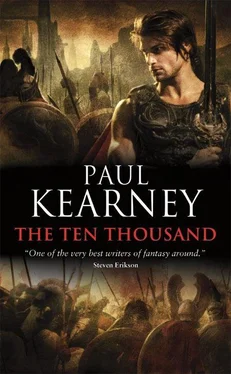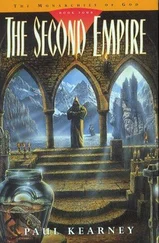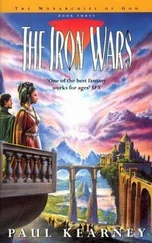Paul Kearney - The ten thousand
Здесь есть возможность читать онлайн «Paul Kearney - The ten thousand» весь текст электронной книги совершенно бесплатно (целиком полную версию без сокращений). В некоторых случаях можно слушать аудио, скачать через торрент в формате fb2 и присутствует краткое содержание. Жанр: Фэнтези, на английском языке. Описание произведения, (предисловие) а так же отзывы посетителей доступны на портале библиотеки ЛибКат.
- Название:The ten thousand
- Автор:
- Жанр:
- Год:неизвестен
- ISBN:нет данных
- Рейтинг книги:5 / 5. Голосов: 1
-
Избранное:Добавить в избранное
- Отзывы:
-
Ваша оценка:
- 100
- 1
- 2
- 3
- 4
- 5
The ten thousand: краткое содержание, описание и аннотация
Предлагаем к чтению аннотацию, описание, краткое содержание или предисловие (зависит от того, что написал сам автор книги «The ten thousand»). Если вы не нашли необходимую информацию о книге — напишите в комментариях, мы постараемся отыскать её.
The ten thousand — читать онлайн бесплатно полную книгу (весь текст) целиком
Ниже представлен текст книги, разбитый по страницам. Система сохранения места последней прочитанной страницы, позволяет с удобством читать онлайн бесплатно книгу «The ten thousand», без необходимости каждый раз заново искать на чём Вы остановились. Поставьте закладку, и сможете в любой момент перейти на страницу, на которой закончили чтение.
Интервал:
Закладка:
One patrol passed him as he lay pressed into the fragrant pine-needles at the side of the track. A dozen men perhaps, they bore the light shields of second-line troops: wicker peltas faced with hide. The mirian sigil was splashed in yellow paint across them. These were men of the coastal city, Bas Mathon. Rictus had been there many times with his father; for all that it was eighty pasangs away to the east. He remembered now the gulls screaming over the wharves, the high-prowed fishing smacks, the baskets of silverfin and horrin, bright as spearheads as they were hauled up on the quays. Summer sunlight, a picture from another age. He silently thanked the goddess for granting him the memory.
The men were drinking barley-spirit from leather skins, pressing the bulging bags until the liquid squirted high in the air, and then fighting and laughing like children to have their mouth under as it descended. In their midst two women limped barefoot and naked, heads down and hands bound before them. From the bruises which marked them, they had been captured quite early in the day. One had blood painted all down her inner thighs, and breasts that had only begun to bud. Hardly a woman at all.
They passed by like some twisted revel of the wine-god, lacking only pipe-song to complete the image. Rictus lay a long time in the dark when they had gone, letting the shadow bleed back into his eyes after the dazzling torchlight, seeing beyond the darkness the hopeless face of the young girl, eyes blank as those of a slaughtered lamb. Her name was Edrin. She came from the farm next to his father’s. He had played with her as a child, he five years older, carrying her on his back.
It was the middle part of the night before Rictus stood once more at the lip of his father’s glen. Artdunnon, this place was called; the quiet water. It was brighter now. Rictus looked up to see that both moons were rising above the trees. Great Phobos, the Moon of Fear, and fiery Haukos, Moon of Hope. He bowed to them, as all men must, and then set off down the hillside to where the river glittered amid the pastures in the bottom of the glen.
He could not so much as stub a toe on this track, even in the dark, so well did he know it. The smells of wild garlic from the edge of the woods, the thyme in the rocks, the good loam underfoot; all these were as familiar to him as the beat of his own heart. He allowed himself to hope for the first time since the battle line had broken that morning. Perhaps this place had been passed by. Perhaps his life was not yet shipwrecked beyond hope. Something could be salvaged. Something-
The smell told him. Acrid and strange, it drifted all through the valley bottom. There had been a burning here. It was not woodsmoke, but heavier, blacker. Rictus’s pace slowed. He stopped altogether for a few seconds, then forced himself on. Above him the cold face of Phobos rose higher in the night sky, as if wishing to light his way.
Rictus had been a late child, his father already a grey-templed veteran when he had sired him- much like Remion, now he came to think of it. His mother had been a wild hill-girl from one of the goatherder tribes further north. She had been given to his father by a hill-chief in payment for service in war, and he had made of her not a slave, but a wife, because he had been that kind of man.
Perhaps the mountain-blood, the nomad-spirit, was too fine and bright to be chained to a life of the soil. There had been children-two girls-but both had died of the river-fever before they had so much as cut a tooth. Over the years, Rictus had wondered about these pair, these dead siblings who had not even had a chance to acquire personality. He would have liked sisters, company of his own age growing up.
But it was as well, now, that they had died when they did.
Rictus had come along a scant six months after their deaths, a brawny red-faced fighting child with a thick shock of bronze-coloured hair and his mother’s grey eyes. He had not been born here at the farm. His father had taken his pregnant young wife to the coast, to one of the fishing villages south of Bas Mathon. He would have no more children carried off by river-fever. There, in the clean salt air, Rictus had entered the world with the waves of the Machtic Sea crashing fifty paces away.
Whatever strength his mother had given to him had been taken out of herself; she had delivered him squatting over a blanket with Zori clucking beside her, and then Rictus’s father had carried her to his rented bed so she could bleed to death in comfort. Her ashes had been brought back from the shores of the sea and scattered in the woods overlooking the farm, as those of her dead babes had been before her. Rictus had never been told her name. He wondered if she watched him now. He wondered if his father walked beside her, his arms filled with his smiling daughters.
They had burned the farm, driven off the stock. The longhouse was a gutted, smoking ruin open to the sky. Rictus shuffled to the main door, and as he had expected, most of the bodies lay there. They had fought until the burning thatch came down around them. His father he recognised by the two missing fingers on his spear-hand. He used to call them war’s dowry. Were it not for that old wound he would have been in the battle line today beside his son, fighting for his city as every free citizen must. The council had exempted him, because he had given such good service in the past. He had been a rimarch, a file-closer, in his younger days. In the phalanx the best men were placed at the front and the rear of the files, to keep the fainter hearts in the line and lead them into the othismos, the hand-to-hand cataclysm that was the heart of all civilized warfare.
Beside Rictus’s father lay Vasio, his bald pate the only part of him which was not burnt black; he must have been wearing his old iron helm, but it was gone now. And Lorynx, his father’s favourite hound; he lay at his master’s feet with his flesh carved to ribbons and the fur seared from his skin. They had all died shoulder to shoulder. Scanning the ground about the house in the bright moonlight, Rictus counted eight separate gouts of blood that had blackened the beaten earth of the yard and now were beginning to glister with frost. A good accounting.
His eyes stung. The burning had kept the vorine from the bodies, but they would soon regain their courage. Things must be done right; his father would have it no other way. Rictus dropped his broken spear and with one hand he ripped the neck of his looted chiton. Eyes open wide he stared up at Phobos and Haukos and began to croon the low, slow lament for the dead, the Paean, part of the ancient heritage of the Macht as a single people. Men sang it on the death of their kin and they sang it going into battle, the beat of it keeping their feet in step with one another. Rictus had sung it only that morning, heart bursting with pride as the Iscan phalanx had advanced to its doom.
He gathered the bodies together, fighting the urge to retch as the blackened flesh came off in his hands, the white bone laid bare as a carved joint. Zori he found beside the central hearth of the longhouse, beneath a pile of smouldering thatch. She had dressed in her best for the end, and had not been touched by the invaders. Asking her forgiveness, Rictus slipped her pride and joy, her sea-coral pendant, from about her neck before replacing what remained of her veil upon her face. He would have need of it, he told her. She had never denied him anything, and had been his mother in all things but blood.
There were enough red embers to light the pyre. Rictus piled up broken timber, hay, his father’s favourite chair, all on top of the bodies of his family, and above them he laid the dog, that he might watch his master’s door in the life to come. A flask of barley-spirit he broke over the pyre and it went up with a white flare of hungry flame. He sang the Paean again, louder this time, to be heard by his mother’s spirit so that she might be there to welcome her husband. He stood by the bonfire of his past for a long time, not flinching as the flesh within it popped and shrank in the heat. He stood watching, dry-eyed, until the flames began to sink. Then he lay down beside it with his truncheon of a spear to hand. And, mercifully, he slept at last.
Читать дальшеИнтервал:
Закладка:
Похожие книги на «The ten thousand»
Представляем Вашему вниманию похожие книги на «The ten thousand» списком для выбора. Мы отобрали схожую по названию и смыслу литературу в надежде предоставить читателям больше вариантов отыскать новые, интересные, ещё непрочитанные произведения.
Обсуждение, отзывы о книге «The ten thousand» и просто собственные мнения читателей. Оставьте ваши комментарии, напишите, что Вы думаете о произведении, его смысле или главных героях. Укажите что конкретно понравилось, а что нет, и почему Вы так считаете.












